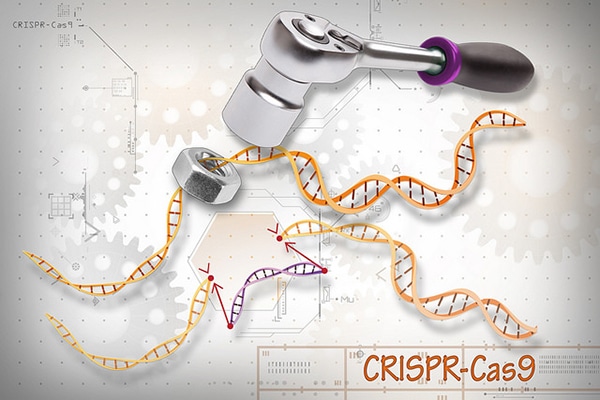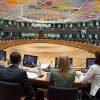
Scientific progress is posing problems that hitherto pertained to the realm of dreams or nightmares but are now part of reality. An instance is the editing of human genes, something the recently-discovered technique known as CRISPR enables with the utmost precision and increasing inexpensiveness. Every month there are reports of new breakthroughs in the field, with a race breaking out in which China and the UK, two relatively lightly regulated countries, have taken the lead alongside the US. The social, economic and ethical (positive and negative) consequences of genetic editing, especially when it can be transferred to descendants, are huge. They call for international regulations and a global governance that do not exist.
The CRISPR (or CRISPR-Cas9) system (standing for Clustered Regularly Interspaced Short Palindromic Repeats) enables genetic material to be precisely edited, rather as written texts can be edited, in viruses, bacteria, plants, animals and human beings. It is a veritable revolution that is already yielding major advances in the fight against chronic and hereditary diseases. It also permits changes to be made to the human species. This video shows editing of this kind being performed.
Last summer, scientists from various countries (the US, South Korea and China) succeeded in using CRISPR to correct the hereditary element of hypertrophic cardiomyopathy, which can cause sudden death in athletes and children. This autumn, researchers at the Francis Crick Institute in London, a cutting-edge institution recently opened and well-funded in the UK, reported using this technique to modify the development of human embryos at an early stage of their development, with changes to their DNA, to demonstrate how a fertilised egg becomes a viable foetus.
The regulations in this area are highly varied and this has given rise, despite the undoubted cross-border scientific cooperation that exists, to an international competition to see who can be first (and register the patents involved). Canada, France, Germany and Brazil, for instance, have explicitly outlawed clinical interventions in the human germline (which is passed on to descendants). In Spain, the 2007 Biomedical Research Act, which may need revising in the light of these advances, excessively focused as it is on cloning, introduced the precautionary principle. It bans the ad hoc creation of embryos for experimentation, although surplus embryos from in vitro fertilisation treatments may be used, having obtained the prior blessing of certain committees and the consent of the parents. It is a restrictive system, however.
Other countries (including China, India and Japan) are more relaxed, especially since their prohibitions are not enshrined in law. The US is relatively restrictive, although there is no direct ban. In the UK, which is more lax, the approval of the Human Fertilisation and Embryology Authority, which authorised the experiment referred to above, is required. Could the diversity of regulatory regimes lead to ‘CRISPR tourism’, whereby all and sundry would be able to change their own genomes in permissive jurisdictions?
Jennifer A. Doudna, one of the pioneers of this technology (another is the Spaniard Francis Mojica) has written a remarkable book (A Crack in Creation. Gene Editing and the Unthinkable Power to Control Evolution, co-authored with Samuel H. Sternberg), where, while rejecting a permanent ban or moratorium on research into human gene editing, she argues for international cooperation to control such experiments.
The US National Academy of Sciences and National Academy of Medicine, with an international panel of experts to study the potential risks in the case of humans and the possibility of unintended consequences of gene editing, have suggested seven principles for the governance of human genome editing: promoting well-being, transparency, due care, responsible science, respect for persons, fairness and transnational cooperation with the responsibilities that arise from each of these.
These principles can provide the basis, as the World Economic Forum points out, for making progress on the governance or global regulation of a technology with the potential to change the human race. Doudna calls on scientists to refrain from making heritable changes to the human genome. But it is difficult to ask this of many scientists, and there are some in China, such as Junjiu Huang and his team, who have made inroads in this area, and have continued experimenting with CRISPR on human embryos. Doudna herself has said that if CRISPR could eliminate a disease-causing mutation in an embryo with a high degree of certainty and only a small possibility of introducing an undesirable mutation in another part of the genome, the advantages of the technology would outweigh the dangers.
Regulating and controlling this technology must also form part of global governance, just as the ability to access it must form part of technological justice at an international level. Otherwise, the Homo Deus foretold by the historian Yuval Noah Hariri will create new divisions of a kind that we can only begin to imagine and fear. This is without even raising the possible consequences in the security and defence domain, which no major country can afford to overlook.


